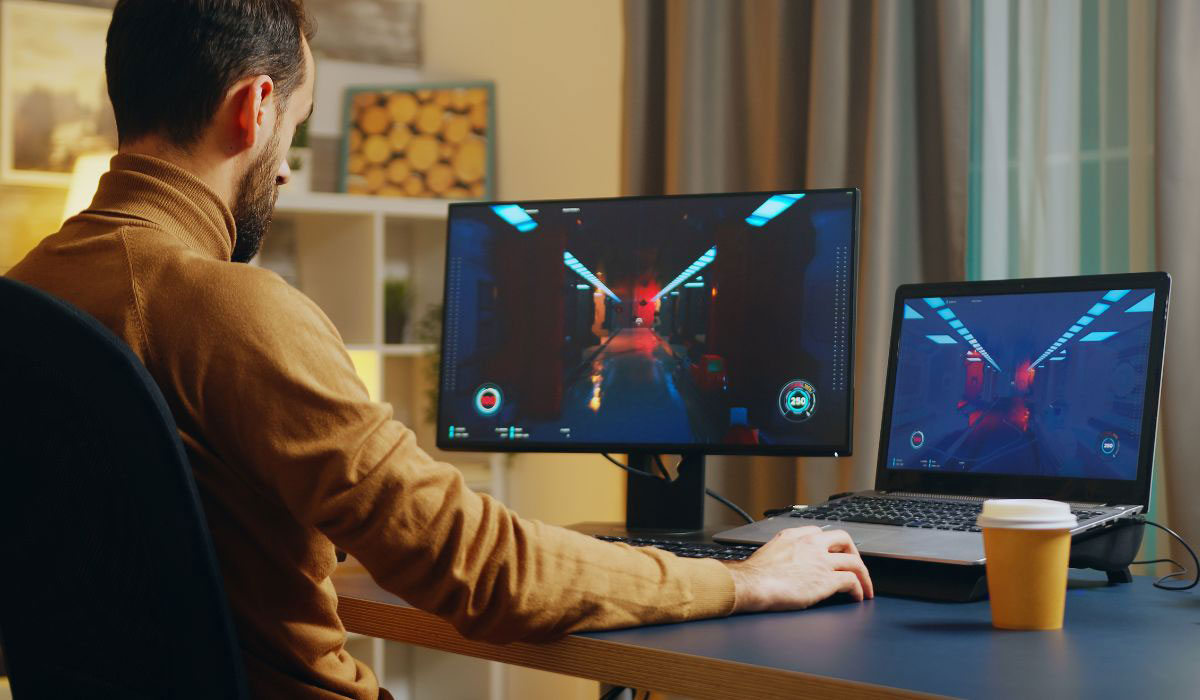The video game business has developed dramatically in recent years, becoming a multibillion-dollar sector that is still growing. This expansion has resulted in a high demand for skilled individuals in both game design and game production. If you’re thinking about a future in this fascinating profession, it’s critical to grasp the distinctions between game design and game development so you can make an informed decision. Let us explore these distinctions and shed light on the educational pathways open to prospective game designers and developers..
Game Design vs. Game Development: An Overview
Before delving into the distinctions, let’s define these two critical roles in the game industry:
Game Design: Game designers are responsible for the creative vision and concept of a video game. They focus on the player experience, including gameplay mechanics, level design, storytelling, and game balance. Game designers often work on the conceptual and artistic aspects of a game, shaping its overall feel and appeal.
Game Development: Game developers, on the other hand, are the technical wizards who bring a game designer’s vision to life. They write the code, create the graphics, design the user interface, and handle the intricate technical aspects of game creation. Game developers work on turning the design into a functional, interactive game that players can enjoy.
Educational Paths for Aspiring Game Designers and Developers
If you’re passionate about entering the world of game design and development, it’s essential to choose the right educational path. Here are some relevant programs that can help you kickstart your career:
BE in CSE Specialization in Game Design & AR:
Game Design Specialization: This program is tailored for students who wish to focus exclusively on game design. You’ll learn about game mechanics, storytelling, character development, and game prototyping.
Game Development Specialization: If you’re more inclined towards coding and technical aspects, you can opt for a specialization in game development within the BE in CSE program. This track covers programming languages, game engines, and software development tools.
BE in Game Design:
- This specialized program delves deeply into the art of game design. You’ll explore topics like game theory, level design, user experience, and game production.
- A BE in Game Design program often includes hands-on projects, enabling you to create your own game prototypes and develop a robust game design portfolio.
Now, let’s dive into a more detailed comparison of game design and game development:
Creative vs. Technical:
Game Design: Game designers are primarily creative thinkers. They envision gameplay experiences, design characters, and develop storylines. Creativity, storytelling, and problem-solving are key skills for game designers.
Game Development: Game developers are the technical experts who turn these creative ideas into reality. They write code, work with graphics and physics engines, and ensure that the game runs smoothly. Strong programming skills and attention to detail are essential for game developers.
Conceptual vs. Technical Tools:
Game Design: Game designers use conceptual tools like storyboards, concept art, and design documents to convey their ideas. They focus on game mechanics, flowcharts, and player engagement.
Game Development: Game developers work with technical tools such as programming languages (like C++, Java, or Python), game engines (such as Unity or Unreal Engine), and integrated development environments (IDEs).
Player Experience vs. Game Functionality:
Game Design: Game designers prioritize the player’s experience. They ensure that the game is engaging, fun, and enjoyable. Balancing difficulty, creating immersive worlds, and designing intuitive interfaces are key aspects of game design.
Game Development: Game developers are responsible for implementing the mechanics and systems that make the game function. They handle collision detection, physics simulations, and the overall game engine.
Collaborative vs. Specialized Roles:
Game Design: Game designers often collaborate closely with artists, writers, and sound designers to create a cohesive game. They have a more holistic role in shaping the game’s overall experience.
Game Development: Game developers may specialize in various areas such as programming, 3D modeling, animation, or sound engineering. They work together as a team, each contributing their technical expertise to the project.
To summarize, in the realm of game design and development, both jobs are essential, and success is frequently dependent on the collaboration of designers and developers. Understanding the distinctions between game design and game development is essential when deciding on a professional route.
Read this blog post: Game Design & AR: An Overview of the Gaming Industry and Emerging Trends
Whether you prefer the creative vision of game design or the technical challenges of game development, specialized programs such as BE in CSE Specialization in Game Design & AR and BE in Game Design can provide you with the knowledge and skills you need to succeed in your chosen field. Embrace your gaming passion, investigate these educational possibilities, and begin on an exciting career in game creation and development.
Chitkara University’s B.E. Computer Science Engineering program with a specialization in Game Design & AR offers a four-year immersive learning experience that combines theoretical knowledge with practical skill development. This specialized program is designed for aspiring game designers and immersive technology enthusiasts. It takes an integrated approach, emphasizing experiential learning, the acquisition of highly demanded skills in the gaming industry, and the application of Computer Science theory to game design and immersive technology. Graduates are prepared to lead in the ever-evolving gaming and immersive technology industry, with opportunities ranging from game programming to AR/VR development. Chitkara University’s strong academic reputation, diverse specializations, small class sizes, and impressive campus recruitment rate make it a compelling choice for those looking to chart a successful and meaningful career in this dynamic field.
This program covers essential topics, including game design concepts, Augmented Reality (AR), and user-centered design, ensuring students are well-equipped for careers in game design and immersive technology. Graduates can pursue roles such as Game Programmer, AR Programmer, VR Programmer, Game Designer, and more. Chitkara University’s commitment to applied academic methodology and industry exposure ensures that students not only understand the theory but also gain practical experience, preparing them to thrive in the billion-dollar gaming and immersive media industry.






